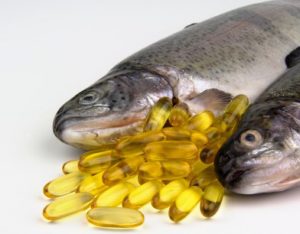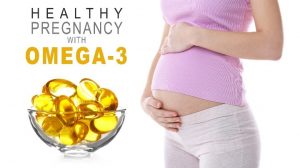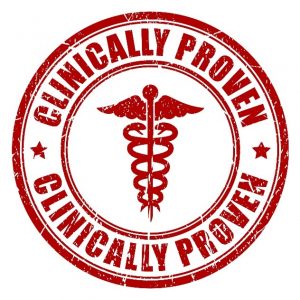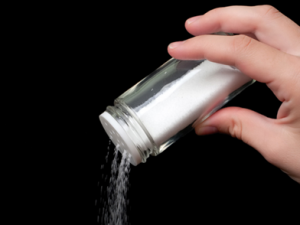What Can Vegan Moms Do?
Author: Dr. Stephen Chaney
 A whole food vegan diet is incredibly healthy:
A whole food vegan diet is incredibly healthy:
- Vegans are less likely to be overweight than the general population.
- Vegans have a lower risk of diabetes, heart disease, cancer, hypertension, and several other diseases than the general population.
- Whole food vegan diets are anti-inflammatory, so they lower the risk of autoimmune diseases and the “itis” diseases.
But vegan diets leave out meat, dairy, and eggs. Vegetarians without proper dietary advice are at high risk of inadequate intake of vitamin B12, vitamin D, iron, iodine, calcium, and DHA. And, of course, the risk of inadequate intake is even greater for vegans than it is for vegetarians, who may include some dairy and eggs in their diet.
So, it is legitimate to ask whether a vegetarian or vegan diet is sufficient for pregnancy and lactation. The short answer is that they can be if they are properly designed and properly supplemented.
But that is not an easy task, as evidenced by a recent study (N Ureta-Velasco et al., Nutrients 15:1855, 2023) comparing the breast milk of omnivore moms with the breast milk of vegetarian and vegan moms.
How Was This Study Done?
 This study was done with 92 omnivore moms, 9 vegetarian moms (5-ovo-vegetarian and 4 lacto-ovo-vegetarians) and 11 vegan moms between August 2017 and February 2020 at the Regional Human Milk Bank at the “12 de Octubre” University Hospital in Madrid, Spain. The vegetarian and vegan moms were grouped together for data analysis.
This study was done with 92 omnivore moms, 9 vegetarian moms (5-ovo-vegetarian and 4 lacto-ovo-vegetarians) and 11 vegan moms between August 2017 and February 2020 at the Regional Human Milk Bank at the “12 de Octubre” University Hospital in Madrid, Spain. The vegetarian and vegan moms were grouped together for data analysis.
On Day 0 of the study, participants went to the regional milk bank for blood and urine samples to determine nutritional status, a screening to determine health and socioeconomic status, and for food frequency questionnaire to characterize their habitual diet.
On days 1-5, they returned to the regional milk bank with a 24-hour diet recall of the previous day and to express 25 ml of breast milk to determine its nutrient content. On day 6, they returned to express a larger sample of breast milk to determine its lipid content (including EPA and DHA).
Note: Both the food frequency questionnaire and the 24-hour dietary recalls included nutrients derived from supplements.
What Did The Study Show About Dietary Intake of Key Nutrients?
 This was a comprehensive study, so I will just cover the highlights here:
This was a comprehensive study, so I will just cover the highlights here:
Birth Weight: Compared to the children of omnivore moms, the children of vegetarian/vegan moms were more likely to:
- Have less weight gain during pregnancy (2 pounds less on average).
- Be underweight at birth (60% of babies born to vegetarian/vegan moms were in the underweight category of birth weights versus 25% for babies born to omnivore moms).
This is probably because vegetarian/vegan moms:
- Consumed slightly fewer calories per day (2146 versus 2319).
- Consumed significantly less protein (67 g/d versus 96 g/d).
- Were 10 times more likely to be underweight prior to pregnancy (10% versus 1%).
This is a concern because low birth weight increases the risk of physical and mental health issues later in life.
Supplement Use: The nutrients of greatest concern in a vegetarian/vegan diet are vitamin B12, vitamin D, iron, iodine, calcium, and DHA. For all these nutrients except DHA, this message appears to have gotten out to most vegetarian/vegan mothers because they were compensating for these potential deficiencies through supplementation.
For example, when they looked at average daily intake of these key nutrients from supplements, they found:
| Nutrient | Vegetarian/Vegan Moms | Omnivore Moms |
| Vitamin D | 1,080 IU (27mcg) | 240 IU (6 mcg) |
| Folic acid | 400 mcg | 280 mcg |
| Vitamin B12 | 312 mcg | 2 mcg |
| Calcium | 566 mg | 164 mg |
| Iron | 40 mg | 29 mg |
| DHA | 100 mg | 180 mg |
However, that doesn’t tell the whole story, because not all vegetarian/vegan moms took supplements. When the investigators looked at the percent taking supplements, this is what they found.
| Nutrient | Vegetarian/Vegan Moms | Omnivore Moms |
| Vitamin D | 50% | 50% |
| Folic acid | 35% | 61% |
| Vitamin B12 | 85% | 60% |
| Calcium | 15% | 37% |
| Iron | 25% | 43% |
| DHA | 10% | 16% |
Dietary Intake (Food + Supplements): The extra supplementation clearly played an important role because when the investigators looked at the overall intake from food and supplements, they found:
| Nutrient | Vegetarian/Vegan Moms | Omnivore Moms |
| Vitamin D | 224 IU (5.6 mcg) | 432 IU (10.8 mcg) |
| Folate + Folic acid | 668 mcg | 473 mcg |
| Vitamin B12 | 258 mcg | 6.9 mcg |
| Calcium | 910 mg | 1148 mg |
| Iron | 31 mg | 25 mg |
| DHA | 110 mg | 380 mg |
Again, this doesn’t tell the whole story. Some women didn’t supplement. When the investigators looked at the percentage of women getting an inadequate intake of key nutrients from food plus supplements they found:
| Nutrient | Vegetarian/Vegan Moms | Omnivore Moms |
| Vitamin D | 75% | 88% |
| Folate + Folic acid | 0% | 39% |
| Vitamin B12 | 25% | 0% |
| Calcium | 45% | 40% |
| Iron | Not reported | Not reported |
| DHA | Not reported | Not reported |
These results clearly show the need for supplementation. While the average intake from food plus supplements looked good, there were a significant percentage of women who weren’t getting adequate intake of key nutrients because they didn’t supplement.
The exceptions were folate + folic acid for vegetarian/vegans because their diet is rich in folate-containing foods and vitamin B12 for omnivores because their diet is rich in foods containing B12.
Is Vegan Breast Milk Sufficient?
Of course, the proof is in the pudding. When the investigators looked at the nutrient content of breast milk, this is what they found:
| Nutrient | Vegetarian/Vegan
Moms |
Omnivore
Moms |
Reference
Value* |
| Vitamin D3 | 1.1 mcg/L | 3.4 mcg/L | 0.25-2 mcg/L |
| Folate + Folic acid | 19 mcg/L | 20 mcg/l | 80 mcg/L |
| Vitamin B12 | 0.74 mcg/L | 0.65 mcg/L | 0.5 mcg/L |
| Calcium | 83 mg/L | 99 mg/L | 200-300 mg/L |
| Iron | Not reported | Not reported | |
| DHA | 0.15 g/100 g fat | 0.33 g/100 g fat | 0.35 g/100 g fat |
*Reference values established by WHO
- The chief difference between breast milk from vegetarian/vegan moms was in DHA levels.
- That’s because the diet of vegetarians and vegans contains very little DHA, and very few vegetarian/vegan women in this study supplemented with DHA.
- This study also found that breast milk from both vegetarian/vegan moms and omnivore moms was low in folate + folic acid, calcium, nicotinamide, and selenium. They said that requires follow-up in future studies.
The authors concluded, “The most important contribution of this study is the detailed and comprehensive description of micronutrients and lipids in human milk from omnivore milk donors and vegetarian/vegan women…Of particular concern is the lower DHA content in the milk of our vegetarian/vegan group. However, raising awareness and administering proper supplementation could bridge the gap, as has been the case with vitamin B12.”
What Can Vegan Moms Do?
 This study emphasizes the importance of careful planning and supplementation during pregnancy and lactation if you are a vegetarian or vegan mom.
This study emphasizes the importance of careful planning and supplementation during pregnancy and lactation if you are a vegetarian or vegan mom.
For example, the vegetarian/vegan women in this study were more likely to have low birthweight babies, and low birthweight infants are at risk for health issues later in life. That means:
- Careful planning is required to select calorie- and protein-rich plant foods.
- A high-quality plant protein supplement can be a great help.
Supplementation is particularly important during lactation to assure your breast milk adequately nourishes your newborn baby. For example, in this study:
- The vitamin B12 level in the breast milk from vegetarian/vegan moms was adequate because 85% of them supplemented with vitamin B12.
- The DHA level in the breast milk from vegetarian/vegan moms was inadequate because only 10% of them supplemented with DHA.
- The authors of this study recommended that vegetarian and vegan moms consume at least 200 mg of DHA from algal sources while they are breastfeeding.
However, finding a prenatal supplement that provides all the nutrients you need prior to pregnancy, during pregnancy, and while breastfeeding is challenging. I gave you 7 tips for choosing the best prenatal supplements in a previous “Health Tips From the Professor” article.
The Bottom Line
A recent study asked whether the breast milk of vegetarian and vegan moms was sufficient for the needs of their newborn babies. The study found that:
- Folate levels in their breast milk were sufficient because the diets of vegetarians and vegans contain many folate-rich foods.
- Vitamin B12 levels in their breast milk were sufficient because 85% of the vegetarian and vegan women in this study supplemented with vitamin B12.
- DHA levels in their breast milk were insufficient because the diets of vegetarian and vegan women are very low in DHA, and only 10% of the women in this study supplemented with DHA.
- The authors of this study recommended that vegetarian and vegan moms consume at least 200 mg of DHA from algal sources while they are breastfeeding.
This study reinforces the need for supplementation during lactation to assure your breast milk adequately nourishes your newborn baby.
However, finding a prenatal supplement that provides all the nutrients you need prior to pregnancy, during pregnancy, and while breastfeeding is challenging. I gave you 7 tips for choosing the best prenatal supplement in a previous “Health Tips From the Professor” article.
For more information on this study read the article above.
These statements have not been evaluated by the Food and Drug Administration. This information is not intended to diagnose, treat, cure, or prevent any disease.
___________________________________________________________________________
My posts and “Health Tips From the Professor” articles carefully avoid claims about any brand of supplement or manufacturer of supplements. However, I am often asked by representatives of supplement companies if they can share them with their customers.
My answer is, “Yes, as long as you share only the article without any additions or alterations. In particular, you should avoid adding any mention of your company or your company’s products. If you were to do that, you could be making what the FTC and FDA consider a “misleading health claim” that could result in legal action against you and the company you represent.
For more detail about FTC regulations for health claims, see this link.
https://www.ftc.gov/business-guidance/resources/health-products-compliance-guidance






























